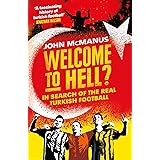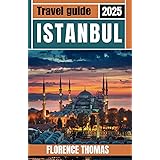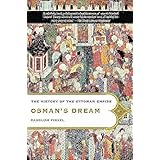by Dr. Mehmet Uhri, Turkish Writer
Istanbul, Türkiye
ETYMOLOGY
Poetry comes from the Arabic root shrr, which means knowing, guiding, while in Hebrew it has the meaning of series, chain. Manzum means organised.
The Latin root is poetry- poaet: Creative vision derives from the root of seeing.
Poetry is defined as ‘grasping something by intuition; measured, harmonious speech arising from emotion and excitement’.
It is even debatable whether it is a form of communication. It can be thought to be an emotional communication from heart to heart rather than from mind to mind.
In short, we are talking about something related to emotions rather than reason.
Among the first written examples of poetry, which can be thought to date back to the earliest periods of oral culture, are the Sumerian Epic of Gilgamesh (4000-3000 BC), Chinese folk songs, the Sanskrit Vedas (1000 BC), some texts of Zoroastrianism, Homer’s epic Iliad and Odyssey (9th-8th centuries BC), and Ennius’ Annales (2nd century BC).
DEFINITIONS
According to Yahya Kemal Beyatlı, poetry is a different music from the music we know. It is the expression of emotions into language.
According to Cahit Sıtkı Tarancı, poetry is ‘the art of forming beautiful shapes with words.’
Ahmet Haşim defines poetry as a language that is between words and music, but closer to music than words.
Cemil Meriç, on the other hand, defines poetry as the land of scepticism and says ‘the best description of poetry is poetry itself’.
The English literary critic John Carey, on the other hand, emphasises that poetry is a specialised language and says that poetry is to language what music is to sound.
According to Peyami Safa, the sine qua non of poetry are culture, intuition, thought, manners, emotion, and everything that inflates the soul and brings it into contact with movement and existence.
‘Poetry is poetry because it is written in the language of the divine word, that is, revelation. ‘ says İlhan Berk
Necip Fazıl Kısakürek says that poetry is the search for absolute truth.
According to Ahmet Hamdi Tanpınar, poetry is a search for perfection that finds its purpose in itself, away from all kinds of interest relations (away from utilitarian reason).
There are also many opinions that it is easier to define what poetry is not rather than what it is, that there are definitions for average poetry, but that it is not possible to define superior poetry.
The common points that are agreed upon are the features of poetry such as ‘comprehension based on intuition’, ‘containing elements of emotion and imagination’ and ‘being harmonious’.

Is it a means of communication?
Poetry is neither only about meaning nor only about words.
Traditionally, it is even claimed that poetry cannot be transferred to another language due to the separation of words and meaning.
This situation shows that the elements of word and meaning, form and content are specially organised in a fused form in poetry; it is aimed to convey emotion with an artistic structure, not as a means of conveying outward news and information as in communication and scientific language.
With a well-known analogy, the language of poetry is like the steps in dance; it does not aim to progress and aims to create a harmony by closing in on itself.
Prose language, on the other hand, aims to progress outwards like the steps in walking.
Is poetry something learnt?
Poetry is an emotional game for the writer and the reader. We are born into poetry. All babies start life with play. They play the same game for hours without getting bored in their own rhythm and music.
Poetry, like play, contains rhythm and harmony. As we grow up, we move away from our games with the control of our minds. Poetry, on the other hand, is perhaps a game that we rediscover in adulthood and keep alive in us. Therefore, everyone is a little poet.
In this sense, poetry is a play that contains emotion.
THE TRAGIC FEELING OF LIFE
Seeing the wise Solon (6th century BC) weeping for his dead son, a presumptuous person asks, ‘Why are you weeping when you know it will be useless?’. Solon replied, ‘That is precisely why I cry, for it is useless’.
Perhaps poetry is written and read for the same reason.
‘It is the tragic feeling of life that brings us closer to art, literature and poetry,’ says Miguel de Unamuno.
There is only one truth and that is the truth of death. In this way, life is a tragedy that we have to play and time is killing us.
In order not to face the reality of death, we use our consciousness to deal with other areas. We postpone time by hoping.
It is possible to be free from the tragic feeling of life by going beyond the present time.
Those who experience the tragic feeling of life every moment are melancholics.
So what do we do to get rid of the tragic feeling of life, to get away from this feeling?
It is clear that what we seek is not immortality.
What we seek is to get out of the time that kills us, to be out of time, to be able to forget time.
In Spinoza‘s book on theology, he writes that ‘everything struggles first of all to resist in its own existence, and the struggle to maintain its own existence is a journey to hope. It points to an indefinite time instead of a time with an end‘.
When we hope or dream, time does not disappear but becomes uncertain. The desire for immortality is also carried to another time through what we hope for.
In the poem, the desire for immortality is like the effort of a person who wants to forget or change time to escape out of time, if not with his mind, then with his intuition.
In the poem, the desire for immortality seems to be an effort to escape out of time, if not with the mind, then with the intuition of a person who wants to forget or change time.

It is a journey from Kronos to Kairos.
Therefore, it is good for us.
Although it is not easy to understand because we live in the universe of consciousness, we seek timelessness by using emotions such as desire, desire, curiosity, love and love that make us who we are in the realm where we communicate with emotions.
Although what we desire may seem like immortality, we seek timelessness, timelessness, Kairos in coping with the tragic feeling of life.
Poems make us intuit this timelessness.
Aristotle says ‘All human beings by nature insist on knowledge’. To know, to learn is a passion beyond desire. Curiosity is also fuelled by this passion for knowing.
However, as Spinoza emphasises, knowing is primarily in the service of the instinct of protection. This requires utilitarian reason, that is, consciousness.
The endeavour to escape from the tragic feeling of life forms the basis of human community in its most primitive form, namely love. A hug is the most effective consolation.
Our consciousness covers the reality of death with other things. We can cope with the tragic feeling of life only by stepping out of time.
Poetry creates a sense of timelessness and timelessness for both the writer and the reader. It is like the journey of emotions from heart to heart. Words are only intermediaries.
The source of poetry is an invisible, intangible other world perceived as a subjective feeling.
It is the place where Orhan Veli says he cannot explain.
Descartes begins his discourse on method with ‘common sense is the most shared thing in the world’. What he is talking about is an intuitive state.
Poetry is the verbalisation of common sense. Words are the carrier of that feeling.
What is the difference between this feeling and consciousness?
Let’s take the concept of infinity. We feel the existence of infinity not with our consciousness but with our emotions. We explain the infinity of being with our consciousness (numbers, etc.).

Ingrid Jonker
‘My word is a tiny grain
‘My death is a grain of nothingness’
What is poetry like for the writer and what is it like for the reader?
Poetry is the scattering of emotion and its spread into timelessness. As such, for the reader, poetry is ‘you talking to yourself’. It is the suspension of consciousness. Consciousness allows this to some extent. The main concern of consciousness is to continue to exist.
This sense of eternity or timelessness of poetry, which transcends the individual, is limited by consciousness. Consciousness may have conceptualised these situations in which words are spoken like divine words by calling them ‘poetry’ in order to keep them under control.
Our consciousness tells us what is or is not poetry.
Why is poetry moving away from our lives today?
Because we no longer want to be immortal. The idea that wanting to be immortal is a kind of pride or even selfishness finds favour.
The search for immortality has been replaced by the search for ‘freedom’. Hope is replaced by scepticism.
As Gramsci said, the pessimism of the intellect overpowers the optimism of the will.
Utilitarian reason has made us free but sceptical. We are content with ready-made hopes and consume life in a world without the thought of death.
Instead of endeavouring to bring our soul to timelessness, we fall into the simplicity of surrendering to the spirit of time.
Unamuno said: ‘Wherever one looks, reason always gets in the way of our desire for immortality and proves it wrong. Reason is the enemy of life’.
Ingrid Jonker:
Because every death reaffirms
The lie of life
Atilla Ilhan
How little we think we live from how little we live…





















